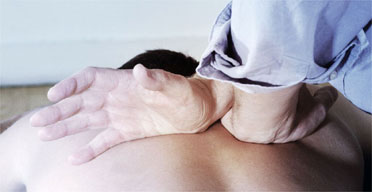
Senior doctors who have called for a halt to NHS spending on alternative therapies were yesterday accused of behaving like old-fashioned "clinical barons" by a leading doctor and ally of Prince Charles.
Michael Dixon, a GP and a trustee and spokesman for the Prince's Foundation for Integrated Health, as well as chairman of the NHS Alliance, joined criticism of 13 leading scientists and doctors in the highest tiers of the medical establishment who have urged the NHS to axe funding for certain unconventional treatments.
The row was stirred last night when the Prince of Wales made a groundbreaking speech to the World Health Assembly in Geneva, outlining his philosophy of holistic care to an audience of the world's health ministers. He urged every country to develop a plan for integrating conventional and alternative medicine.
"Many of today's complementary therapies are rooted in ancient traditions that intuitively understood the need to maintain balance and harmony with our minds, bodies and the natural world," he said.
The prince argued that in "the ceaseless rush to modernise ... many beneficial approaches, which have been tried and tested and have shown themselves to be effective, have been cast aside because they are deemed to be 'old-fashioned' or 'irrelevant' to today's needs".
The letter from the 13 doctors was published to coincide with the prince's speech. Dr Dixon said: "If you look at them, they are surgeons, a pathologist, and none of them represent any GPs or anyone in primary care. It seems to me odd that these clinical barons should be telling those of us who have to deal with daily human suffering what to do. It is almost like some protectionist guild. They have a slightly old-fashioned view."
The letter was signed by the Nobel prizewinner Sir James Black, Professor Keith Peters, president of the Academy of Medical Sciences and, among others, six fellows of the Royal Society.
The society said yesterday that it was not behind the letter, but agreed with it. "We share the concerns expressed in the letter that some treatments labelled as complementary and alternative medicines have not been properly tested and are known to cause adverse effects, while others have no demonstrable benefits," said Professor David Read, the society's vice-president.
The letter was especially critical of homeopathic remedies. "It is an implausible treatment for which over a dozen systematic reviews have failed to produce convincing evidence of effectiveness," says the letter - yet it is promoted in the NHS and in a government-funded guide.
Edzard Ernst, professor of complementary medicine at the Peninsula medical school, Exeter University, whose work is researching the evidence for efficacy in alternative therapies, was another signatory. The Smallwood report into the cost-effectiveness of alternative therapies in the NHS, commissioned by the Prince's Foundation, said homeopathy was effective for asthma, said Professor Ernst. "If you implement that in the UK you will hasten the deaths of several hundred people per year," he said.
Michael Baum, emeritus professor of surgery at University College London, who organised the letter, said some people did feel better on alternative therapies. Speaking on Radio 4, he said: "How do we know that what we are witnessing is a real effect or a placebo? If the placebo is non-toxic and cheap, it doesn't matter.
"My concern is the issue of opportunity cost. If the NHS is spending good money on placebos at the cost of not providing effective medicines, then it does matter. The UCL hospital trust has spent £20m on refurbishing the Royal Homeopathic hospital. If that sum of money was spent on making available Herceptin and aromatase inhibitors [to treat breast cancer], then it could be saving in my own health district 600 lives a year."
Peter Fisher, director of the Royal Homeopathic hospital, said the doctors' attitude amounted to "a form of medical apartheid: any therapy which can't trace its origins to what is called the biochemical model should be excluded from the NHS". He did not know how homeopathy worked but he insisted studies showed it was effective in some conditions.
The British Homeopathic Association said a study of 6,500 patients at the Bristol Homeopathic Hospital showed that 70% felt their health had improved. Others who weighed in against the doctors included the British Acupuncture Council and the General Chiropractic Council.
Pros and cons of ancient cures
St John's wort
A hedgerow plant with yellow star-shaped flowers, Hypericum perforatim has been used for centuries as a cure for anxiety and stress and comes in tablet form or as herbal tea. A 150mg bottle of tablets can cost more than £8. There is evidence from studies that it is effective against mild and moderate depression. Though in itself very safe, St John's wort may prevent some prescription medicines from working properly, including drugs for the treatment of HIV infection, and those used to treat transplant patients, heart conditions, blood clots, asthma, migraine, and the oral contraceptive pill.
Echinacea
One of the most popular alternative remedies, Echinacea purpurea is a big purple flower that looks like a daisy and is native to the prairies of the western United States. Some studies suggest it can help in the common cold, but they are inconclusive. None the less, many people swear by it. Allergic reactions are the most common side-effects but some people have reported more serious problems, such as asthma and hepatitis.

